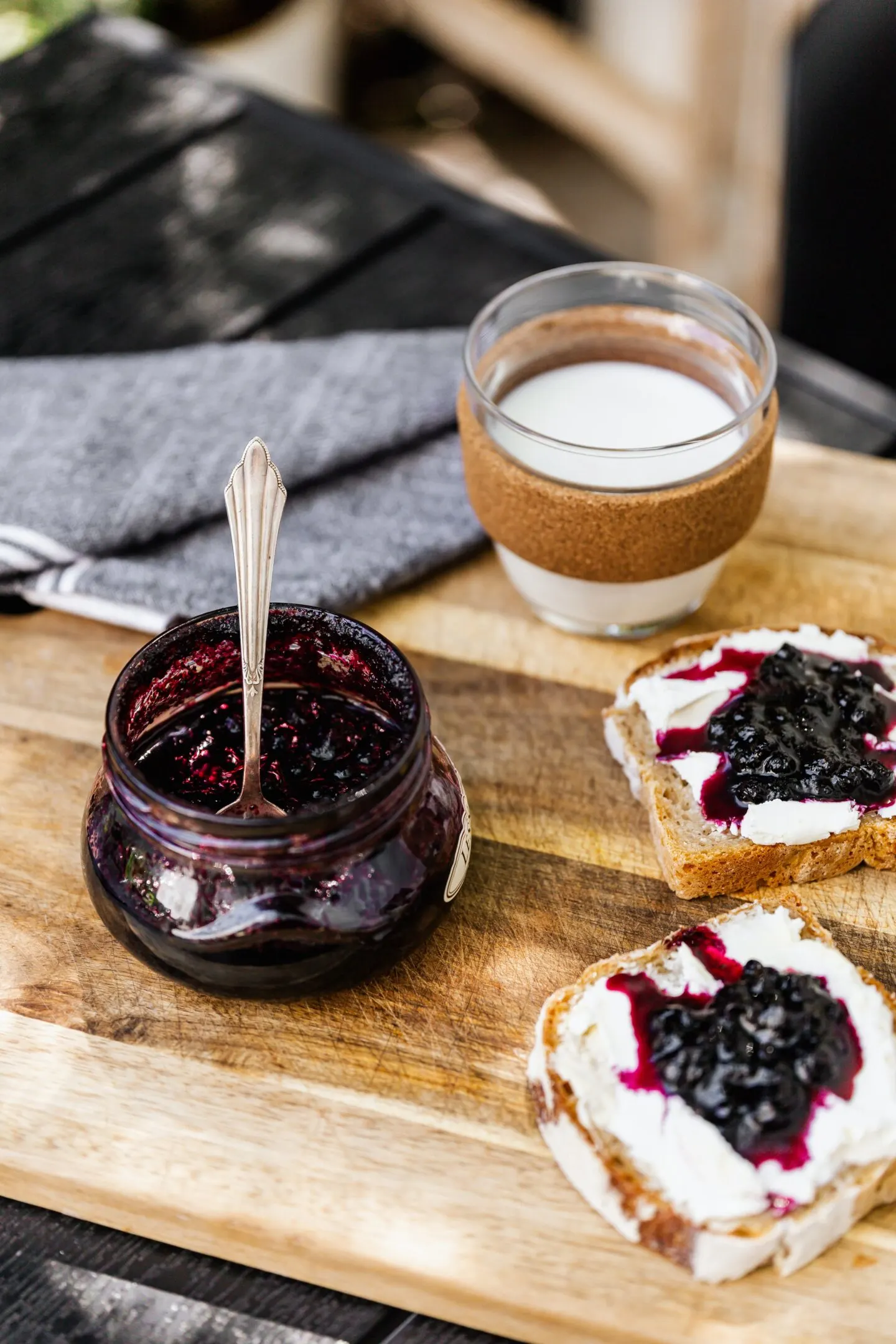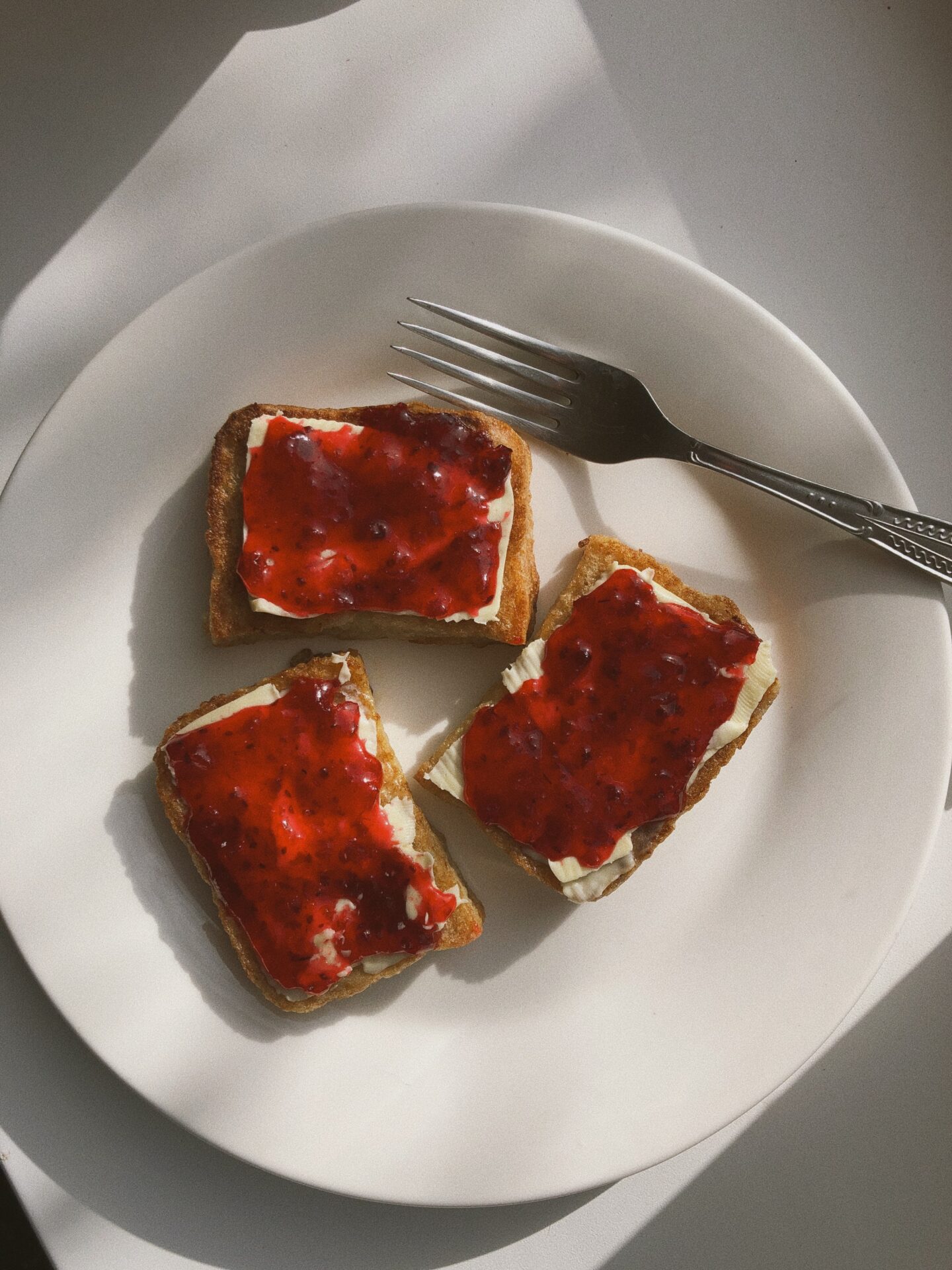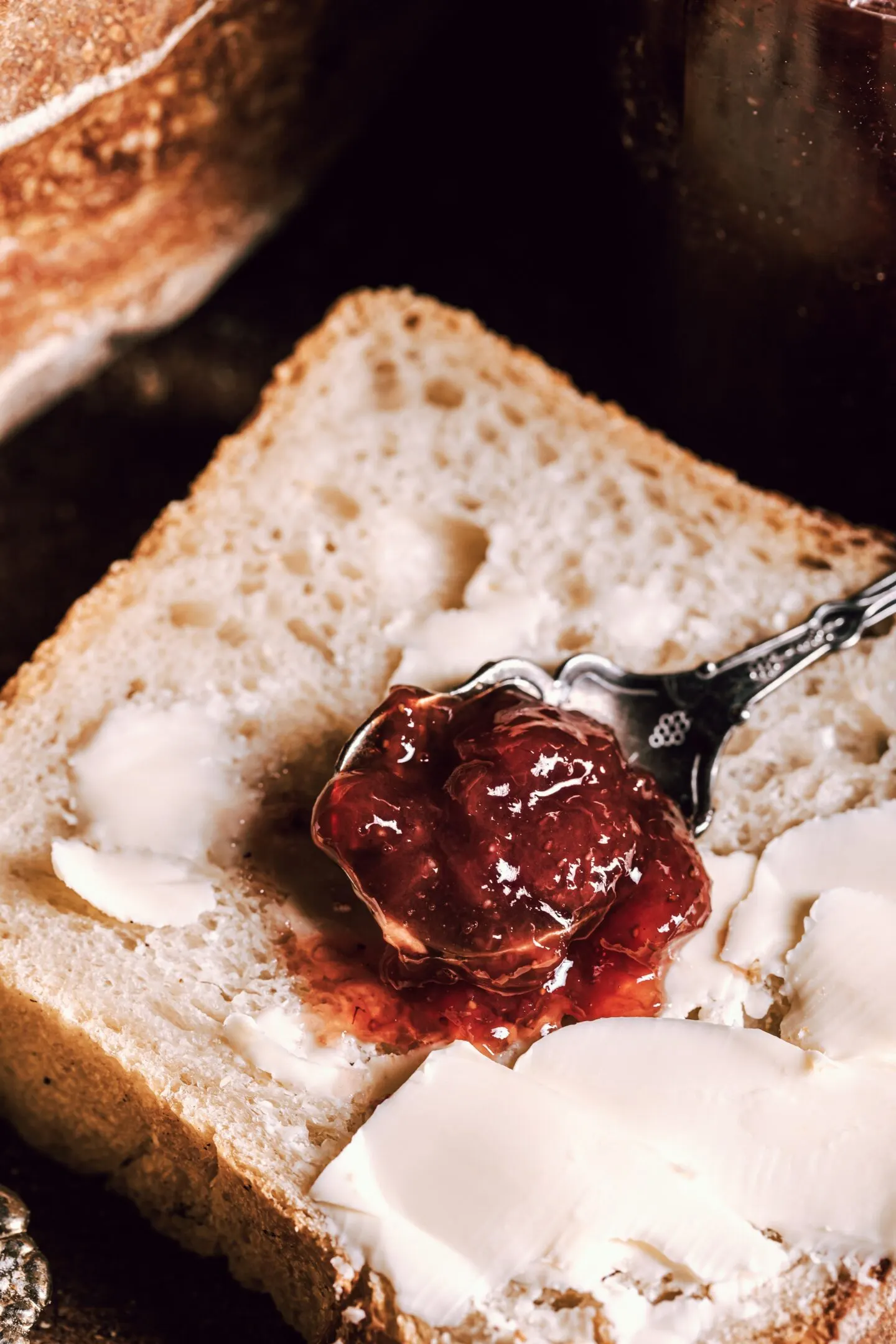A question parents often ask at the start of a child’s baby-led weaning journey is “Can babies have jam on toast?”. Exploring flavours and textures through toast is a convenient way to help babies to try new foods whilst continuing to encourage their journey of food discovery from around 6 months of age.
Jam is considered a safe food for parents wishing to serve babies toast with a variety of exciting flavours, however, the NHS does not recommend giving babies sugary foods at this age due to the potential health concerns that high-sugar diets can cause.

Why you should be mindful about giving your baby jam on toast.
Although the answer is yes to “can babies have jam on toast?”, it is not recommended as a first food due to its high sugar content. Jams typically contain around 60% sugar, therefore if you do want to give your child jam on toast, it’s best to do it very occasionally and offer it sparingly. It’s not advisable to feed your baby jam on toast more than once a day.
Sugary meals, such as jam on toast, can be detrimental to your baby’s health if given in excess. It’s important that parents understand the reasons why sugary foods should be avoided as much as possible during the early years of a baby’s life. When considering ‘can babies have jam on toast’ think about the following points:
- Sugary meals such as jam on toast can cause weight gain in babies
- Meals that contain a high sugar content can make babies feel full up quickly
- Sugary foods can contribute to tooth decay in children
- Sugary foods such as jam on toast can make your baby develop a sweet tooth
Let’s look at each point in turn and find out why you should avoid giving jam on toast to babies.

Sugary meals such as jam on toast can cause weight gain in babies
Can babies have jam on toast and other sugary meals? Technically, yes, jam is a safe food for babies to eat and is great when spread sparingly on toast for an easy and tasty baby-led weaning breakfast.
However, frequently feeding babies foods that contain high amounts of sugar can lead to weight gain and even childhood obesity. These issues can continue to affect children into their adult lives and cause preventable health issues, such as high blood pressure, elevated cholesterol, and even type 2 diabetes.
Additional weight gain can also put strain on still-developing bones and joints, which can cause discomfort and pain.
Meals that contain a high sugar content, such as jam on toast, can make babies feel full up quickly
An important thing to consider when asking “can babies have jam on toast?” is that the more sugar in the meal, the faster your baby will get full up. This can cause some serious issues down the road as babies becoming quickly full up on sugary foods will miss out on the vital nutrients and minerals needed for development that are available in healthier foods.
Due to this, it’s best to minimise the number of sugary meals that you offer your baby, and instead focus on offering a varied and healthy diet that contains plenty of nutrient-rich foods.

Sugary foods can contribute to tooth decay in children
Although there’s nothing wrong with asking can babies have jam on toast for breakfast, sugary meals can become an issue if fed too frequently, or if proper oral hygiene measures are not being carried out effectively. Tooth decay can cause a lot of pain and discomfort, and can happen as soon as a baby starts teething. The NHS recommends parents avoid giving babies sugary foods in order to keep tooth decay at bay.
Sugary foods such as jam on toast can make your baby develop a sweet tooth
Another major issue that can arise from feeding babies jam on toast and other sugary meals is that it can cause babies to develop a sweet tooth.
Babies have a natural affinity to sweet foods, and therefore it is all too easy for them to develop a liking for sweet meals and treats, resulting in them shunning healthier options. Instead of asking can babies have jam on toast, consider exposing your baby to new exciting tastes and textures, such as tasty salmon recipes or nutritious avocado recipes.
Exposing your baby to a variety of healthy foods helps them to develop a taste preference for them, allowing them to fill up on all the good foods that will help them to thrive as they grow.

Can babies have jam on toast if I used “reduced sugar” or “no added sugar” jams?
Can babies have jam on toast if you use “reduced sugar” or “no added sugar” jams? To put it simply, no matter what type of jam you use, it is still going to contain a large amount of sugar.
You may find that some jams are labelled as “healthy” as they contain alternative ingredients to sweeten them, such as agave nectar or maple syrup. However, although these may be slightly healthier than regular sugar, they are still digested in the same way and therefore have the same effect on the body as regular sugar.
No matter what type of jam you use to make jam on toast for your baby, there will be a high sugar content. If you’re keen to start introducing small amounts of jam into your baby’s diet, the best options to go for are jams that are labelled as “no added sugar”.

Alternatives to jam on toast.
The good thing about researching and asking “can babies have jam on toast?” is that it’s likely your baby hasn’t already been exposed to lots of sugary foods. If your baby isn’t used to eating sweetened foods, such as jam on toast, then they won’t be missing out on the sweet taste of sugar as they won’t know the difference.
If you’re looking for sweet alternatives to spread on toast instead of jam, one of the easiest options to go for is mashed up fresh fruit. Soft fruits such as bananas are great for spreading on toast as they’re sweet, healthy, and gentle on a baby’s digestive system. You could also try:
- Avocado mashed up or sliced on toast
- Philadelphia on toast
- Nut butter on toast
You could even switch out your baby’s breakfast toast with eggy bread or crumpets.

Can babies have jam on toast?
In conclusion, when asking can babies have jam on toast, the answer is yes, although you may want to consider alternative toast toppings due to the high sugar content in jam. Jam is full of sugar which can cause numerous health issues for your baby, and even affect their health later in life too, therefore it’s best to only offer it occasionally.
Until your baby is introduced to sweetened foods, they do not know what they’re missing, so do not feel bad for keeping sugary foods and drinks out of their diet for the first couple of years.
